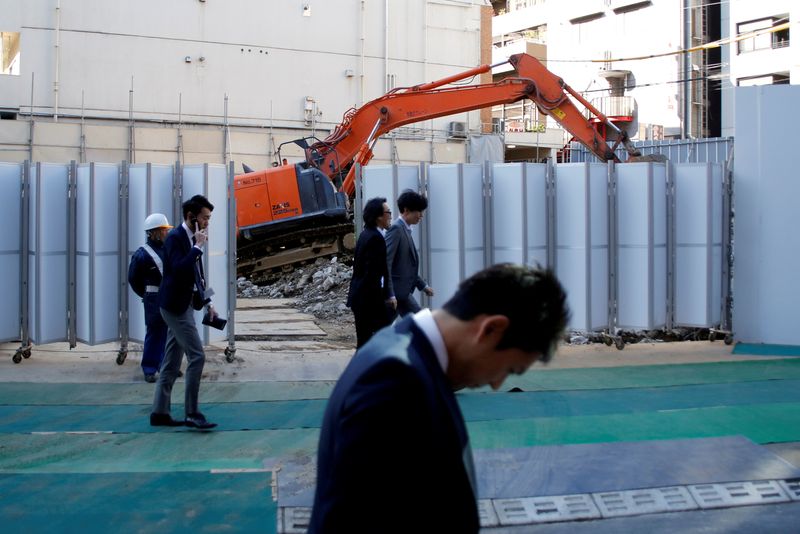Japan Oct machinery orders unexpectedly rise despite economic uncertainty
2023.12.13 20:59

© Reuters. FILE PHOTO: Businessmen walk past heavy machinery at a construction site in Tokyo’s business district, Japan, January 16, 2017. REUTERS/Toru Hanai/File Photo
TOKYO (Reuters) – Japan’s core machinery orders unexpectedly rose in October, climbing for a second straight month, data showed on Thursday, but remained down year-on-year as uncertainty about the global economy pared companies’ appetite for fresh investments.
Core orders, a highly volatile data series regarded as a leading indicator of capital spending in the coming six to nine months, were up 0.7% in October from the previous month, Cabinet Office data showed.
That compared with the median forecast for a 0.5% decline by economists in a Reuters poll.
On a year-on-year basis, core orders, which exclude volatile numbers from shipping and electric utilities, slipped 2.2%, the data showed. It was better than a forecast for a 5.1% drop.
The government, though, retained its view that machinery orders were “stalling,” according to the Cabinet Office data.
The machinery orders are expected to recover at a modest pace because domestic demand is weaker than expected and the outlook for overseas economies is not bright, said Masato Koike, economist at Sompo Institute Plus.
By sector, orders from manufacturers climbed 0.2% in October from the previous month, bouncing back from 1.8% decline in September, due to a rise in orders for metal products.
Service-sector orders advanced 1.2% after a 5.7% gain the prior month, owing to an increase in orders from the real estate, wholesale and retail industries, according to Cabinet Office data.
Capital spending is one of the key drivers for Japan’s economy and a major indicator of business confidence.
Business sentiment at big Japanese manufacturers hit a near two-year high in the three months to December, a Bank of Japan survey showed on Wednesday, lifted by upbeat morale among automakers seeing the boost to profits from a weak yen and easing supply constraints.
Japan’s economy slowed more than first estimated in July-September quarter, weighed down by weakness in consumer and business spending.







